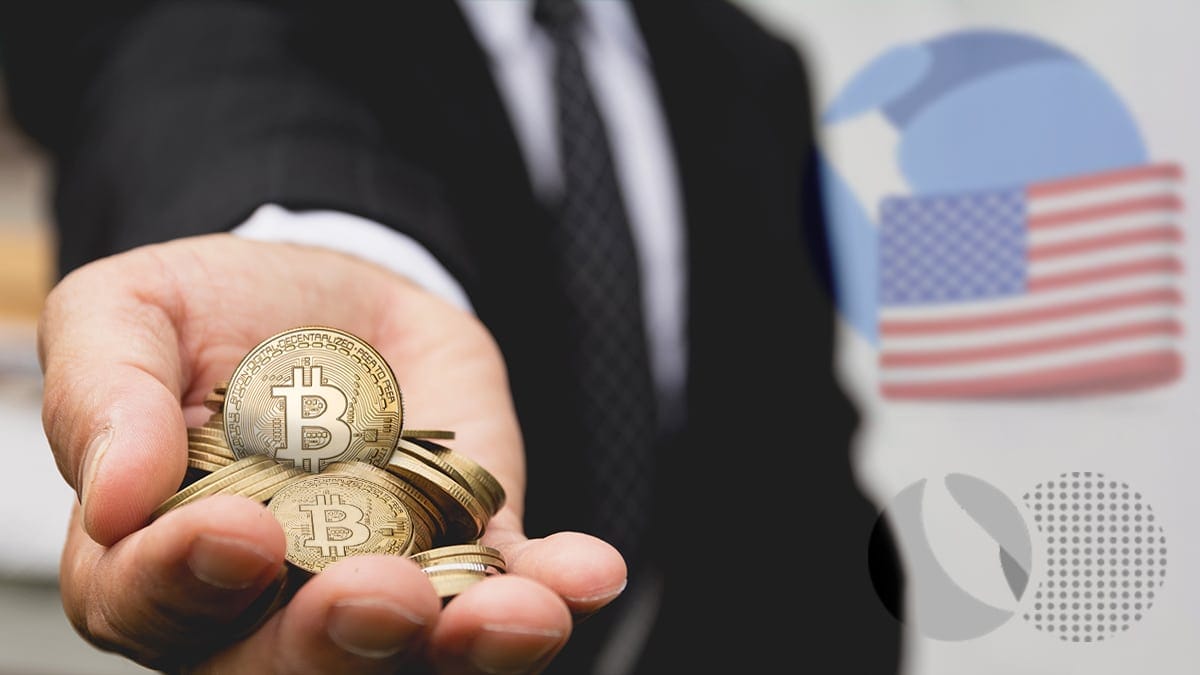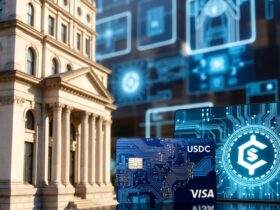Key facts:
National reserves in bitcoin protect the economy.
With bitcoin entering US reserves, a new wave of adoption would erupt.
The world is heading into a new phase of its adoption of bitcoin (BTC). Now, with more and more politicians recognizing the potential of the pioneering digital currency, it is likely that states will soon follow the steps taken by El Salvador, a country that has more than 5,800 bitcoins in its reserves, reaping significant benefits.
In an era marked by global economic volatility and political uncertainty, the collapse of the dollar has begun to look increasingly likely. So, in this scenario, the idea that a new world order will emerge is gaining strength.
In this possible future, the world may begin to revolve around a multi-currency economy in which everyone will choose the one that best suits their needs. And, in this scenario, bitcoin stands out as a solid alternative to protect wealth of individuals, companies and also nations.
Just as bitcoin adoption has been going through stages, now it seems to be the turn of the States, after El Salvador became the first to announce a national treasure in BTC.
Countries such as the United States, Ukraine, the United Kingdom and Georgia, among others, already hold funds in bitcoin, and together they control less than 3% of the digital currency’s supply, but most have wallets managed by their Departments of Justice to store the proceeds of government seizures.
However, owning bitcoin as a national reserve is quite different. It means not only diversifying the state’s assets, but also It is proposed as a strategy to strengthen long-term economic resilience.
As more nations consider the potential of bitcoin, the idea of including it as part of their national reserves becomes increasingly relevant. The decentralized and deflationary nature of bitcoin could contribute to financial stability in times of crisis, facilitating an economy that adapts more quickly to global changes.
Bitcoin in plan to strengthen national reserves
In today’s geopolitical and economic environment, where uncertainty and inflation are omnipresent, more and more countries are moving closer to adopting bitcoin as part of their national reserves. This emerging trend not only seeks to diversify a country’s assets, but also to strengthen its position in an ever-changing financial world.
Since El Salvador declared bitcoin legal tender in 2021, the government, under President Nayib Bukele has shown a constant commitment to the accumulation of BTCacquiring one bitcoin daily since March 2023.
Currently, its reserves amount to 5,867 bitcoins, valued at approximately $330.8 million. This strategy has earned the country an unrealized profit margin of almost $90 million, proving that despite market fluctuations, bitcoin can play a valuable role in national reserves.

These steps that El Salvador has already taken by including bitcoin in its reserves are the ones that Donald Trump promises to replicate if he wins the presidential elections next November in the United States. So, it is possible that we will finally see one of the largest and richest nations in the world Legitimizing BTC as a reserve asset.
Bitcoin being in the US reserves would have huge implications not only for the cryptocurrency created by Satoshi Nakamoto, but for the entire digital asset industry and the world. This is because more nations would surely be following in the footsteps of the United States.
Similarly, US Senator Cynthia Lummis proposed a strategic BTC reserve to strengthen the US dollar, stressing the importance of diversifying funds to ensure the country’s economic future.
Suriname, in South America, is even considering converting 1% of its international reserves in bitcoin as a strategy broader digital financial integration.
Moreover, interest in bitcoin has also been evident in Asia, as in Hong Kong, Legislative Council member Johnny Ng has suggested evaluating the viability of Incorporate Bitcoin into the region’s fiscal reservesThis proposal is presented as a way to place Hong Kong at the forefront of financial innovation.
Maria Corina Machado, leader of the Venezuelan opposition, also believes that a national reserve in bitcoin is necessary for Venezuela to overcome the economic crisis it has experienced in recent years.
In his vision, bitcoin should be integrated into Venezuela’s future national reserves to help in the recovery process once the transition of government is achieved. He also emphasized the determination of the Venezuelan people to “recover democracy” and the importance of technology such as Bitcoin in the fight for financial autonomy and a free and new Venezuela.
In itself, the incorporation of bitcoin as part of national reserves could mark the beginning of a new paradigm in global economic management. The ability of countries to adapt to a rapidly changing environment will define their success in the coming decades.
It is clear that states cannot afford to ignore this trend. Accessing bitcoin could not only be a refuge from adversity, but also a step towards a more dynamic and diversified financial future. The question that remains is: which countries will be the next to follow El Salvador’s example and bet on the new treasure of the 21st century?

Why Bitcoin for Strong National Reserves?
This surge in interest in bitcoin has led financial institutions to recognize it as a legitimate asset class and an investment for the future. Its decentralized nature and gold-like characteristics position it as a suitable candidate for national treasuries.
An appropriate inclusion strategy bitcoin could not only transform a nation’s economic development.
Furthermore, adding bitcoin to reserves significantly diversifies a country’s assets, thereby reducing the risks associated with reliance on a single asset class. This diversification provides a hedge against potential economic downturns. Bitcoin’s scarcity and deflationary nature make it a long-term store of value, helping governments protect their reserves from erosion caused by inflation and devaluation.
Including bitcoin can also improve the performance of the national portfolio. Studies have shown that, over the long term, bitcoin returns outperform those of traditional assets such as stocks and bonds. However, it is crucial to establish secure custody measures to protect these holdings from corruption and theft, thereby ensuring transparency through robust reporting protocols that keep the public informed about the status and management of these assets.
Ultimately, the growing consideration of bitcoin as a tool to strengthen national reserves is a phenomenon that reflects a profound transformation in the way political leaders and economic systems approach financial innovation. The potential candidacy of Trump, along with other leaders who see cryptocurrencies as an opportunity to legitimize a new economic paradigm, may be an indication that We are on the verge of a significant change in global monetary policy.
Disclaimer: The views and opinions expressed in this article belong to the author and do not necessarily reflect those of CriptoNoticias. The author’s opinion is for informational purposes only and does not constitute investment advice or financial advice under any circumstances.






Leave a Reply